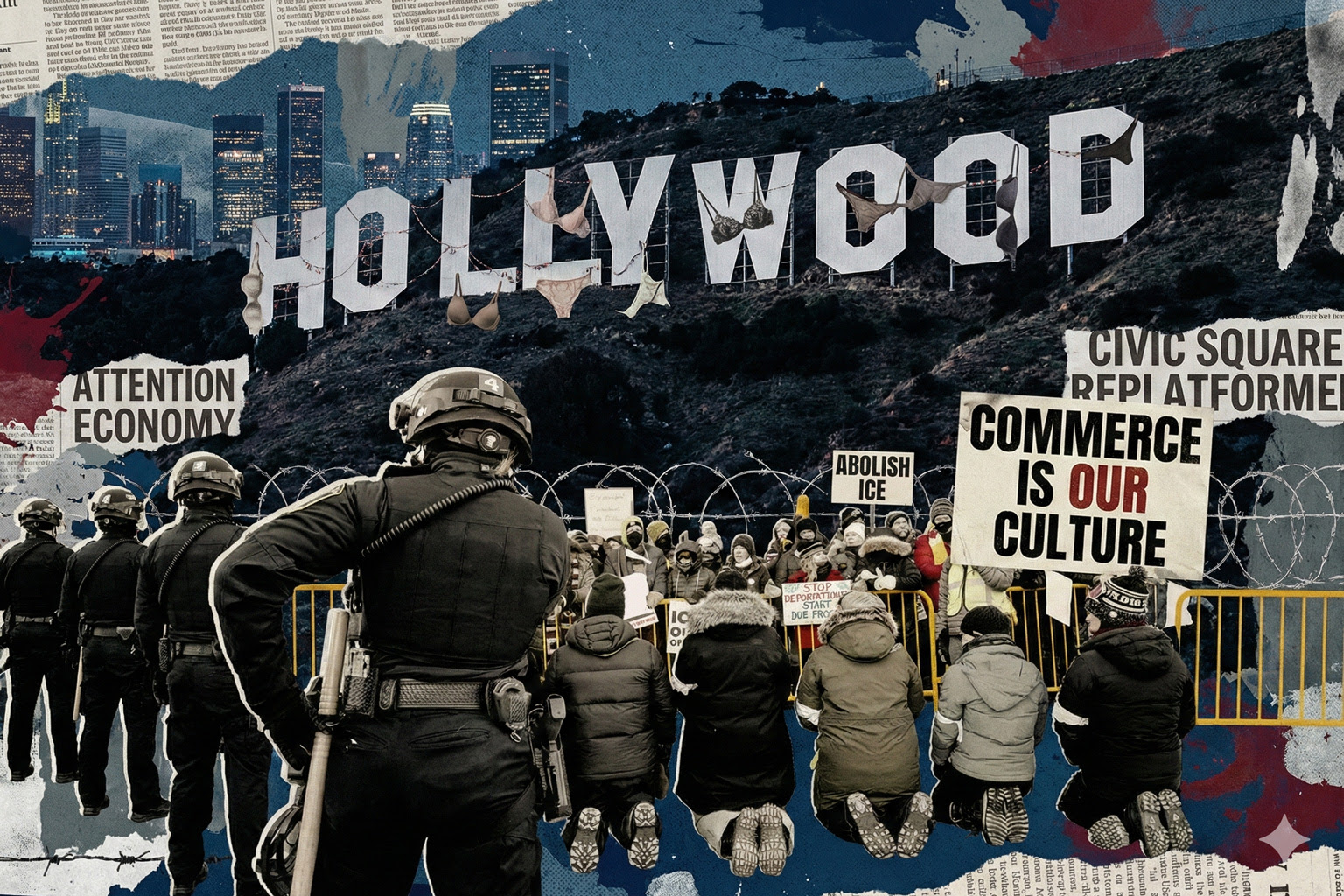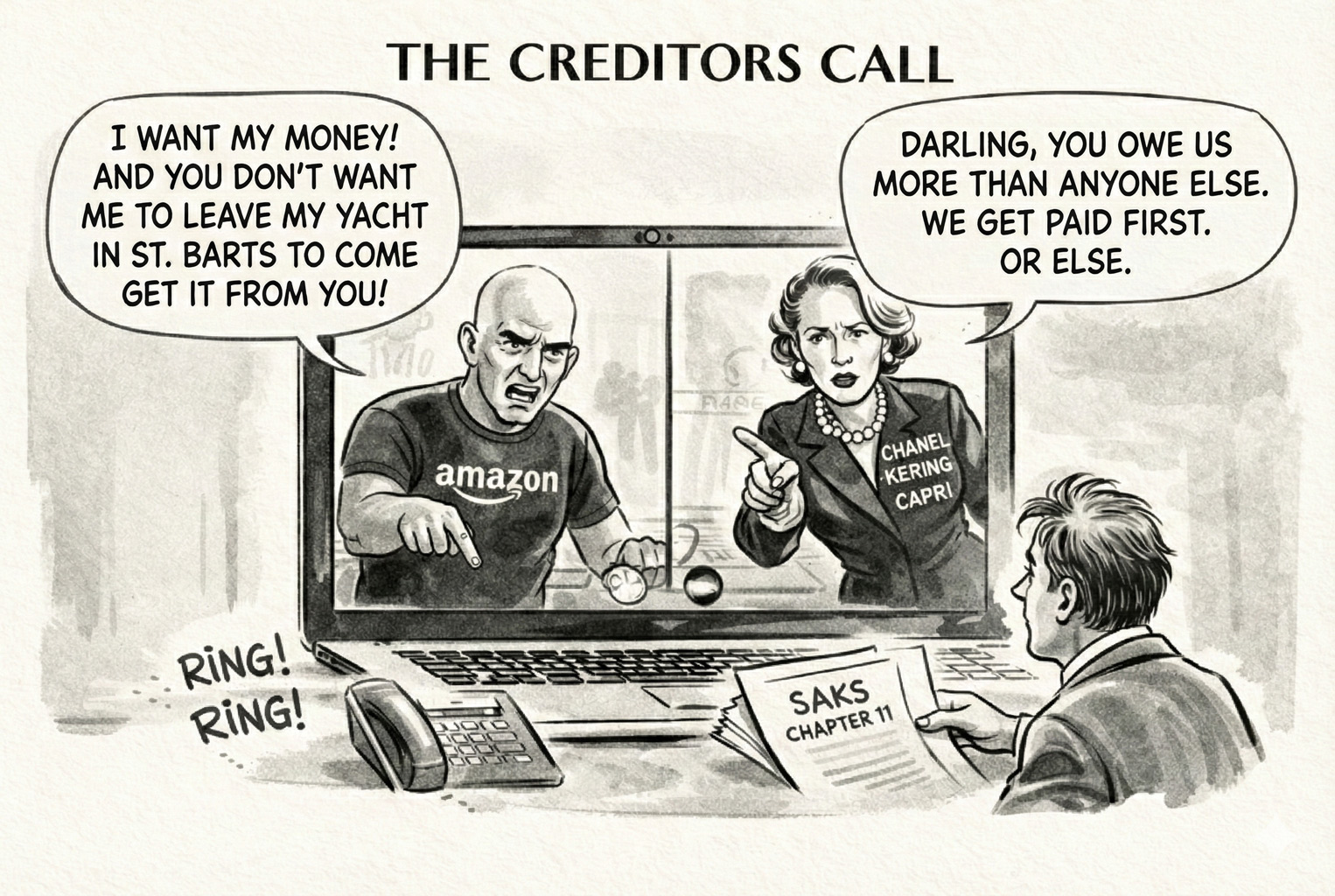
Beef Tallow & Dog Whistles: When Your Fast Food Has Politics


Welcome to Wednesday, futurists.
This week, a viral social media prediction suggested that mainstream brands (in this case, Steak 'n Shake) will increasingly adopt signifiers recognizable to online extremist communities. The post, based on a now-deleted Steak ‘n Shake advertisement for Beef Tallow Fries, reminds us that spotting the crypto-fascist aesthetics in your local diner menu might soon be a necessary consumer skill.
Great.

“The Third Freich:” A New Subtextual War for the Culture
If Commerce is Culture™ (and it is), then every consumer choice—from beef tallow fries to red-state-foam-scrap-pillows—is also a vote for a worldview… and potentially a medium for propaganda to a subculture as a voting block.
The beef tallow fries from Steak ‘N Shake aren’t just subtext, they’re now fulltext. RFK Jr. visited the chain today (March 12, 2025).
The semiotics of consumption have always been political, but we're entering an era where the subtextual becomes textual with alarming speed. What began with Patagonia's understated environmentalism for coastal elites has evolved into Stanley Cup's sapphic symbolism and Black Rifle Coffee's tactical masculinity. From Chick-fil-A's religious positioning (which weirdly appeals to “both sides” of the aisle) to Ben & Jerry's progressive flavor activism (now potentially going private), the commercial landscape has further fractured into ideological enclaves.
As the algorithmic categorization of consumers becomes ever more refined, brands find themselves navigating a new, more paradoxical imperative: appear universal while signaling tribal belonging.
Target's Pride displays (backfire much?) and Bass Pro Shops' Second Amendment aesthetics (hashtag winning, tiger blood, et al) operate as cultural border checkpoints, sorting consumers into their respective ideological territories with increasing precision.
This multimodal signaling isn't merely cynical marketing; it's the logical end-state of hyper-personalization colliding with polarization.
The uncanny valley between "innocent product innovation" and "ideological Bat-Signal" widens with each passing quarter, from Cracker Barrel's electric vehicle chargers to Hobby Lobby's evangelical craft curation.

The Countercultural Backlash
The political right's dietary politics offers the clearest window into this phenomenon.
Liver King's raw organ meat pageantry and the beef tallow revival aren't just food choices—they're masculinity performances packaged as health wisdom. These carnivorous crusaders frame plant-based diets as symptoms of cultural decline (coining the “soy boy” meme) while positioning their meat-heavy regimens as reclaiming some mythic ancestral strength. If fast food chains resurrect beef tallow, one wonders if they're selling both nostalgia and a coded resistance to "woke" nutritional orthodoxies.
This comes at a time when dozens of retail and hospitality brands are dropping DEI policies (while one still holds firm).
When diners order beef tallow fries, are they selecting a culinary preference or affirming allegiance to a worldview? The answer, increasingly, is both—and the ability to discern these layers of meaning is becoming less an academic exercise and more a navigational necessity for the contemporary consumer.
The fascist aesthetic isn't coming to mainstream commerce; it's already arrived, hiding in plain sight beneath a veneer of nostalgic Americana and "traditional values" rhetoric.
The real question isn't whether your local franchise is dog-whistling to extremists, but whether you possess the semiotic literacy to hear it when they do.
Or these could just be fries…
— Phillip

Falling Off The Sustainable Perch. Once-darling footwear unicorn Allbirds reported catastrophic earnings (analysis by Drew Fallon on X/Twitter), showing a ghastly thirteen-point sequential gross margin contraction—transforming from Wall Street's sustainable sweetheart to a cautionary tale of how quickly eco-conscious millennials will abandon a brand once the product loses its cultural cachet.
Another Day, Another Kohl's Disappointment. Kohl's shares plummeted dramatically after missing earnings estimates, marking another painful chapter in the department store's perpetual turnaround narrative—at this point, calling it a "turnaround" feels like watching someone spin in circles while insisting they're making progress.

The Brown Friday Phenomenon. An unexpectedly viral Reddit thread documents the "TJ Maxx poop effect"—the disturbingly frequent practice of customers relieving themselves in store aisles—proving that discount hunting apparently triggers something primal in the American shopper beyond just the bargain instinct. They’re not alone — there’s a TikTok video trend about the phenomenon.

The Church of Kirkland Signature.: Costco continues inspiring quasi-religious devotion across demographic divides while simultaneously raising hourly wages for store workers, making it the rare retail entity that both capitalism stans and labor advocates can enthusiastically worship.

From Jar to TikTok Star. Unilever strategically redirects marketing budgets toward Gen Z personalities who will enthusiastically pretend that spreadable yeast extract is their personality—finally answering the age-old question: "Can you make Marmite go viral without causing actual illness?"

Psychedelic Capitalism Finds New York Home. The boundary-pushing immersive art collective Meow Wolf brings its Instagram-optimized wonderlands to NYC's Seaport district, continuing to perfect the formula of "weird enough for acid-heads, safe enough for corporate off-sites."
Et Tu, Southwest?: The airline abandons its signature free baggage policy after decades of building a brand identity around it, perfectly illustrating how corporate differentiation eventually surrenders to the temptation of nickel-and-diming customers just like everyone else—welcome to the dark side, we've been expecting you.











.svg)
